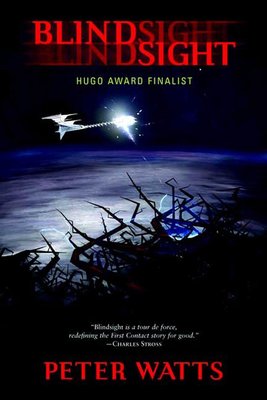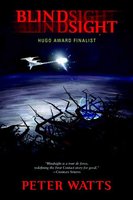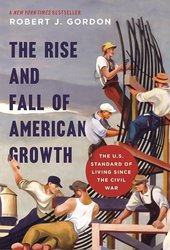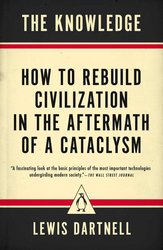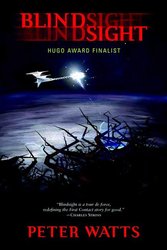Hugo and Shirley Jackson award-winning Peter Watts stands on the cutting edge of hard SF with his acclaimed novel, Blindsight Two months since the stars fell... Two months of silence, while a world held its breath. Now some half-derelict space probe, sparking fitfully past Neptune's orbit, hears a whisper from the edge of the solar system: a faint signal sweeping the cosmos like a lighthouse beam. Whatever's out there isn't talking to us. It's talking to some distant star, perhaps. Or perhaps to something closer, something en route . So who do you send to force introductions with unknown and unknowable alien intellect that doesn't wish to be met? You send a linguist with multiple personalities, her brain surgically partitioned into separate, sentient processing cores. You send a biologist so radically interfaced with machinery that he sees x-rays and tastes ultrasound. You send a pacifist warrior in the faint hope she won't be needed. You send a monster to command them all, an extinct hominid predator once called vampire , recalled from the grave with the voodoo of recombinant genetics and the blood of sociopaths. And you send a synthesist ―an informational topologist with half his mind gone―as an interface between here and there . Pray they can be trusted with the fate of a world. They may be more alien than the thing they've been sent to find.
